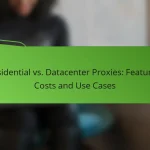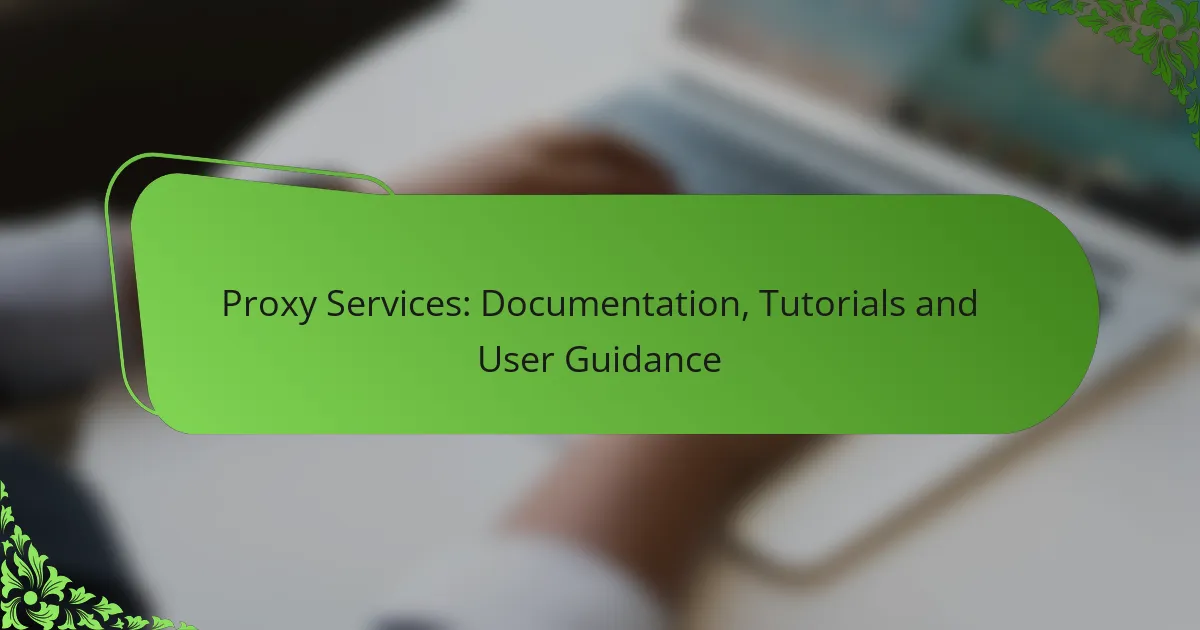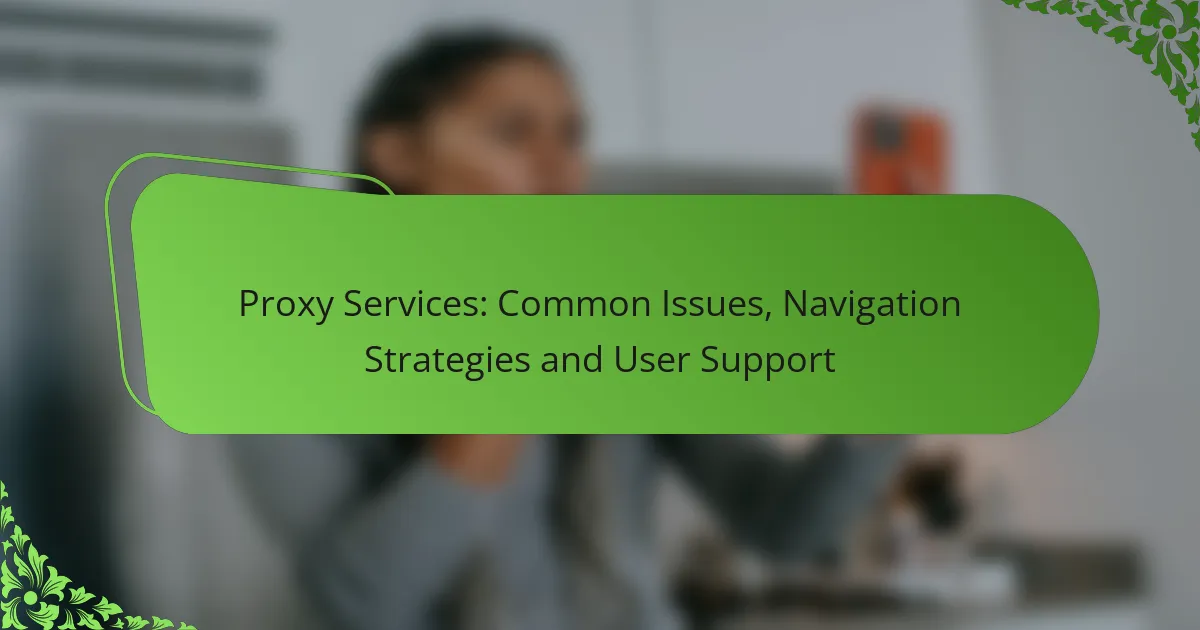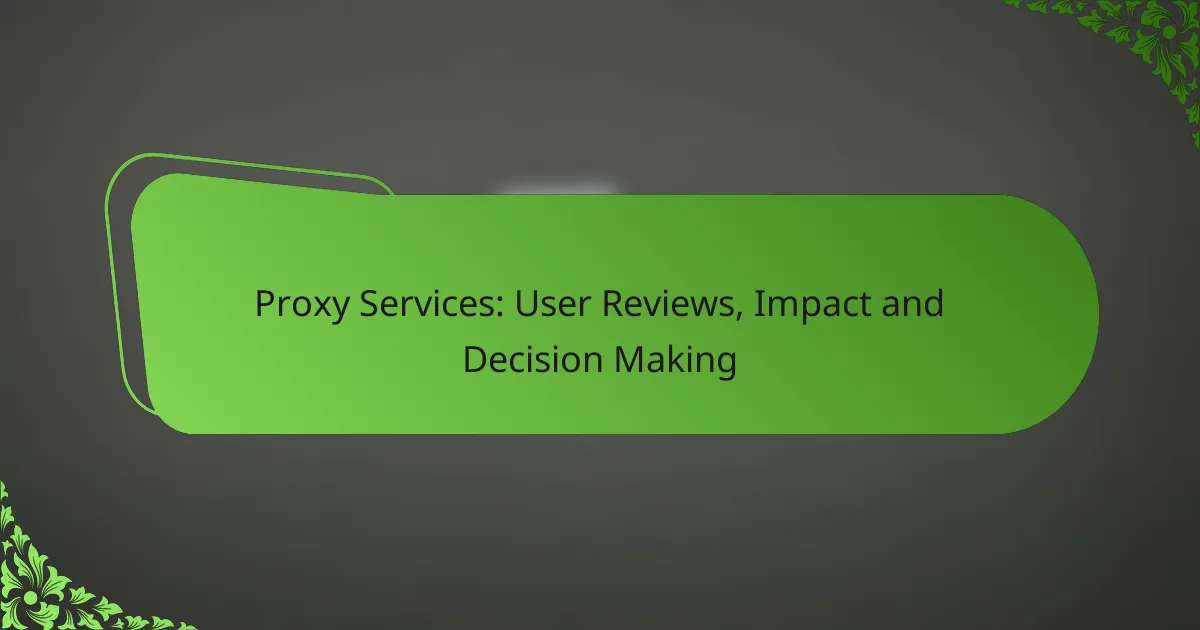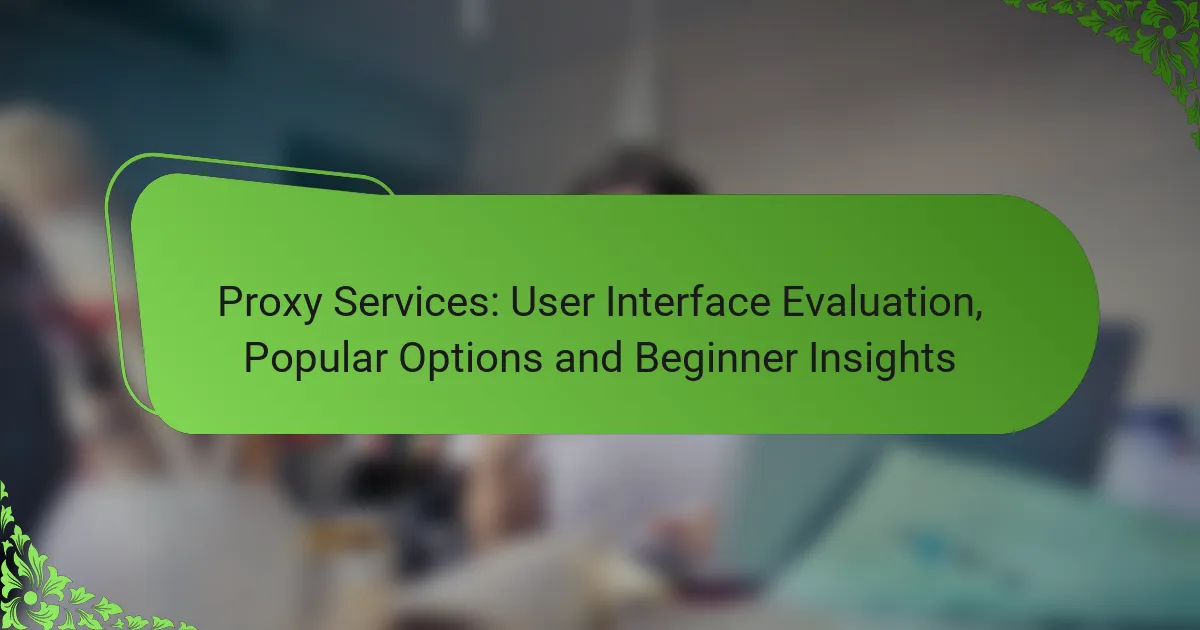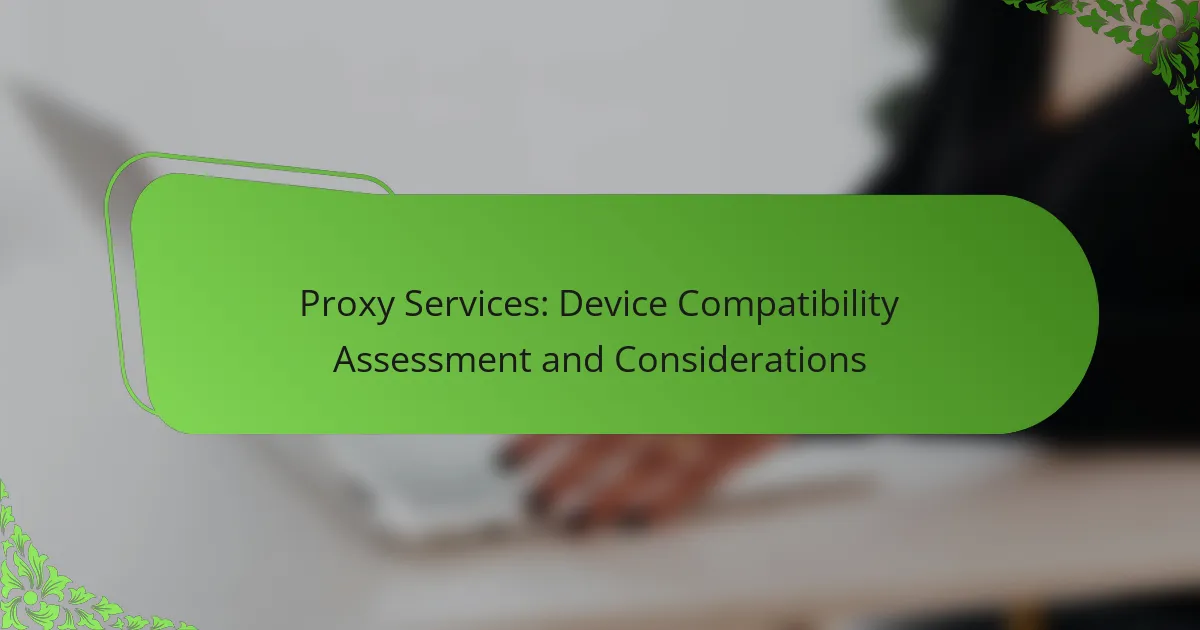Proxy services are essential tools for businesses looking to enhance their online privacy, security, and performance. By routing internet traffic through intermediary servers, these services enable users to access restricted content while maintaining anonymity. This documentation provides comprehensive guidance on selecting, setting up, and utilizing proxy services effectively, ensuring optimal functionality for your online activities.

What are the best proxy services for businesses in the US?
The best proxy services for businesses in the US provide reliable, fast, and secure connections to help companies manage their online activities. Key factors to consider include the variety of proxy types offered, pricing, and customer support.
Bright Data (formerly Luminati)
Bright Data is a leading proxy service known for its extensive network of residential IPs, offering over 72 million IP addresses globally. This service is ideal for businesses needing high anonymity and reliability for web scraping, ad verification, and market research.
When using Bright Data, consider their pricing model, which is based on the amount of data transferred rather than the number of IPs. This can be beneficial for businesses with fluctuating usage patterns, but it may require careful monitoring to avoid unexpected costs.
Smartproxy
Smartproxy offers a user-friendly interface and a vast pool of over 40 million residential IPs, making it suitable for various applications like social media management and data scraping. Their service is designed for ease of use, allowing businesses to get started quickly without extensive technical knowledge.
Smartproxy’s pricing is competitive, with plans that cater to different needs, including pay-as-you-go options. Businesses should evaluate their specific requirements to choose the most cost-effective plan.
Oxylabs
Oxylabs provides a robust proxy service with a focus on large-scale web scraping, offering both residential and data center proxies. Their infrastructure is designed for high-speed connections, making it suitable for businesses that require quick data retrieval.
One of Oxylabs’ key features is its dedicated account management, which can be beneficial for larger enterprises needing personalized support. However, their pricing may be on the higher side, so businesses should weigh the benefits against their budget.
GeoSurf
GeoSurf specializes in providing a reliable proxy service with a focus on geo-targeting, offering access to IPs from various locations worldwide. This is particularly useful for businesses looking to conduct localized market research or test geo-specific content.
GeoSurf’s pricing structure is straightforward, with monthly subscriptions that include a set amount of bandwidth. Businesses should assess their usage needs to select the appropriate plan and avoid exceeding bandwidth limits.
NetNut
NetNut offers a unique approach to proxy services by utilizing a direct ISP connection, which results in faster speeds and higher reliability. This service is particularly advantageous for businesses that require consistent performance for tasks like web scraping and data aggregation.
NetNut’s pricing is based on bandwidth usage, similar to Bright Data, which can provide flexibility for businesses with varying needs. However, it is essential to monitor usage closely to manage costs effectively.

How do I set up a proxy service?
Setting up a proxy service involves selecting a provider, configuring the necessary settings, and testing the connection to ensure functionality. This process allows users to route their internet traffic through an intermediary server, enhancing privacy and access to restricted content.
Step 1: Choose a provider
The first step in setting up a proxy service is to choose a reliable provider. Look for options that offer features such as speed, security, and location variety. Popular providers include NordVPN, Smartproxy, and Bright Data, each catering to different needs and budgets.
Consider factors like pricing models, customer support, and user reviews when making your selection. Many providers offer free trials or money-back guarantees, allowing you to test their services before committing.
Step 2: Configure settings
After selecting a provider, the next step is to configure your settings. This typically involves accessing your device’s network settings and entering the proxy server’s IP address and port number provided by your chosen service. Ensure you also configure any authentication details if required.
For web browsers, you can often find proxy settings under the network or connection settings menu. Make sure to save your changes and restart your browser or device to apply the new settings.
Step 3: Test the connection
Once your proxy settings are configured, testing the connection is crucial. You can do this by visiting a website that displays your IP address to confirm it reflects the proxy server’s address instead of your own. If the IP matches, your proxy is working correctly.
If you encounter issues, double-check your settings for accuracy. Common pitfalls include incorrect IP addresses, port numbers, or authentication credentials. Additionally, ensure that your firewall or antivirus software is not blocking the proxy connection.
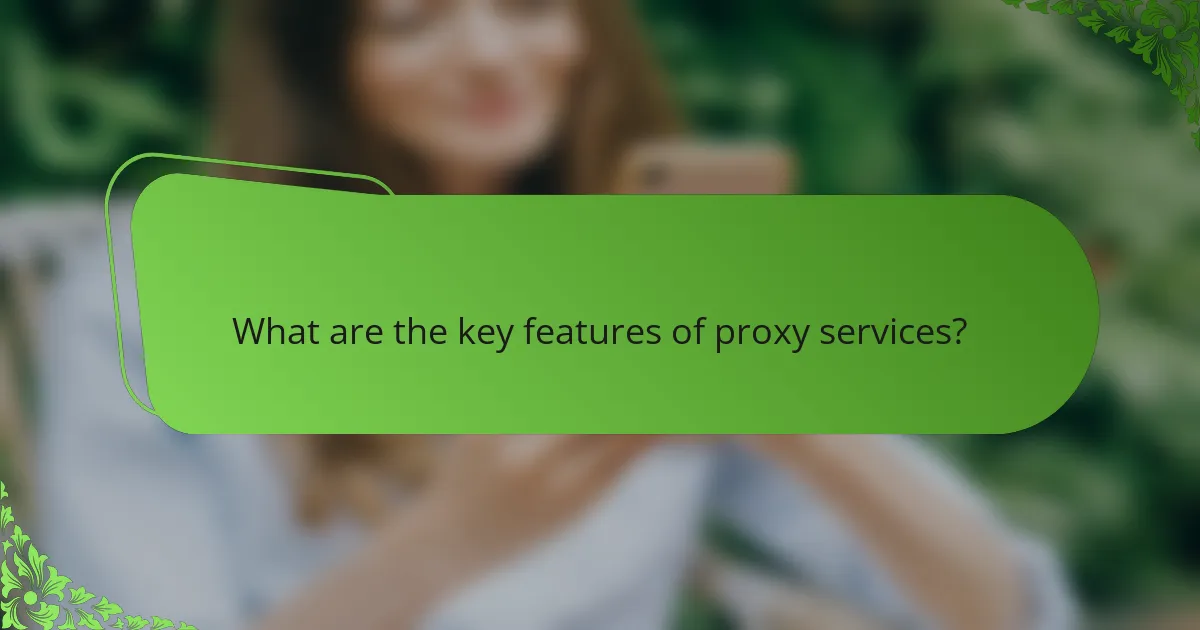
What are the key features of proxy services?
Proxy services offer several essential features that enhance online privacy, security, and performance. Key functionalities include IP rotation, geolocation targeting, session control, and API access, each serving distinct purposes for users seeking anonymity and control over their internet traffic.
IP rotation
IP rotation is a technique used by proxy services to automatically change the IP address assigned to a user at regular intervals or with each request. This helps prevent tracking and reduces the risk of IP bans from websites that monitor traffic patterns.
When selecting a proxy service, consider how frequently the IP addresses are rotated. Some services offer rotation every few seconds, while others may do so every few minutes or on a per-request basis. Frequent rotation is beneficial for tasks like web scraping or automated testing.
Geolocation targeting
Geolocation targeting allows users to select IP addresses from specific countries or regions, enabling access to location-restricted content. This feature is particularly useful for streaming services or websites that offer different content based on geographic location.
When using geolocation targeting, ensure the proxy service provides a diverse range of IP addresses from the desired locations. This can help you bypass regional restrictions effectively. Be aware of any legal implications related to accessing content from different jurisdictions.
Session control
Session control refers to the ability to maintain a consistent IP address for the duration of a browsing session. This is important for activities that require authentication, such as online banking or logging into personal accounts.
Choose a proxy service that offers session persistence if you need to keep the same IP address for extended periods. This feature can help avoid disruptions during critical online tasks. However, be cautious, as maintaining a static IP can make you more susceptible to tracking.
API access
API access allows developers to integrate proxy services into their applications programmatically. This feature is essential for automating tasks such as data collection, web scraping, or testing applications across different environments.
When evaluating proxy services, check if they provide a well-documented API with clear usage guidelines. Look for features such as authentication methods, rate limits, and available endpoints to ensure seamless integration into your projects.
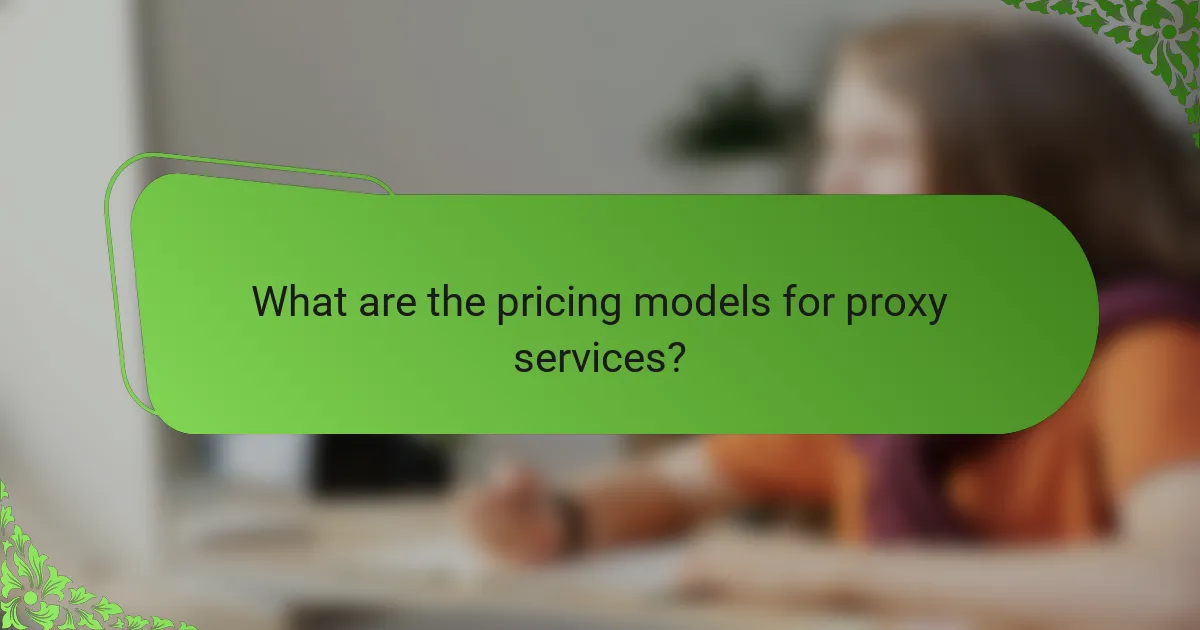
What are the pricing models for proxy services?
Proxy services typically offer various pricing models to cater to different user needs, including pay-as-you-go, monthly subscriptions, and enterprise plans. Understanding these models can help you choose the most cost-effective option based on your usage patterns and requirements.
Pay-as-you-go
The pay-as-you-go model allows users to pay only for the resources they consume, making it ideal for those with fluctuating needs. This model usually charges based on bandwidth usage or the number of requests made.
Consider this option if you anticipate sporadic use or want to test a service without committing to a long-term contract. However, be aware that costs can accumulate quickly if usage spikes unexpectedly.
Monthly subscriptions
Monthly subscription plans provide a fixed cost for a set amount of usage, which can be beneficial for regular users. These plans often come with tiered pricing based on the level of service, such as bandwidth limits or the number of concurrent connections.
This model is suitable for businesses or individuals with consistent proxy needs. Look for plans that offer flexibility in terms of upgrades or downgrades, as your requirements may change over time.
Enterprise plans
Enterprise plans are tailored for large organizations with extensive proxy requirements, often including dedicated support and advanced features. Pricing for these plans can vary significantly based on the specific needs and scale of the business.
When considering an enterprise plan, evaluate factors such as the number of users, required bandwidth, and additional services like enhanced security or data analytics. Engaging with the provider for a customized quote can help ensure you get the best value for your investment.
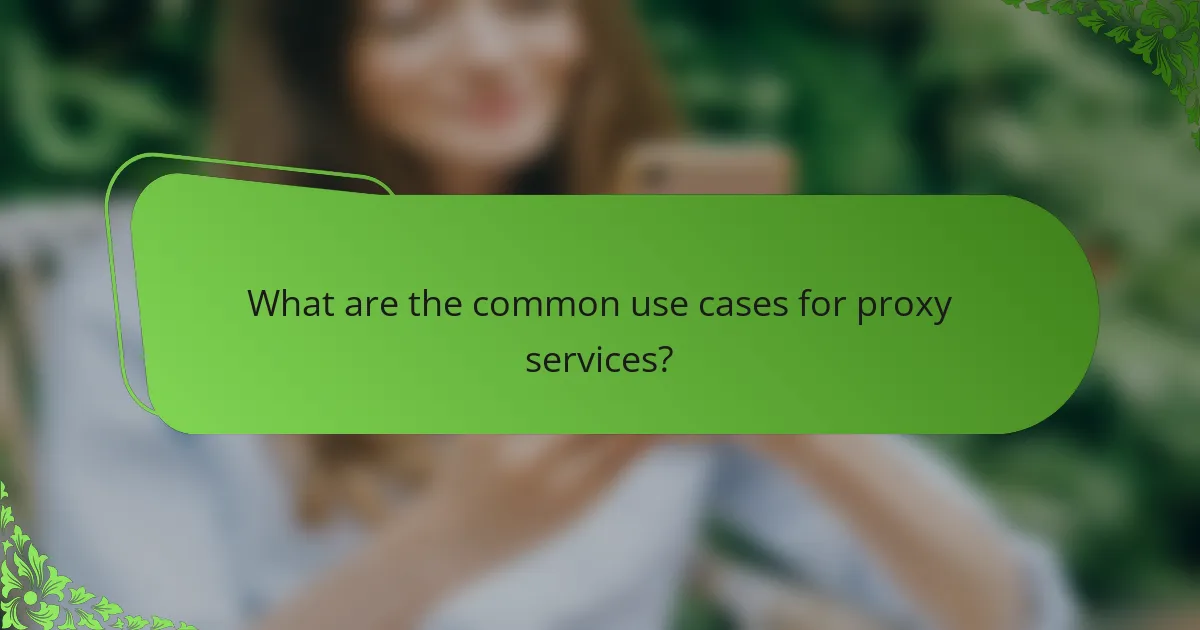
What are the common use cases for proxy services?
Proxy services are utilized for various purposes, including enhancing online privacy, bypassing geo-restrictions, and managing web traffic. They act as intermediaries between users and the internet, allowing for secure and anonymous browsing.
Web Scraping
Web scraping is a common use case for proxy services, enabling users to collect data from websites without revealing their identity. By routing requests through proxies, users can avoid IP bans and access content that may be restricted to certain regions.
When engaging in web scraping, it’s essential to choose rotating proxies, which frequently change IP addresses. This approach minimizes the risk of detection and ensures a smoother data collection process.
Bypassing Geo-Restrictions
Proxy services are effective for bypassing geo-restrictions imposed by websites or streaming platforms. Users can access content available in different countries by connecting through a proxy server located in the desired region.
For optimal results, select a proxy service that offers servers in multiple locations. This flexibility allows users to switch between different regions easily, ensuring access to a wider range of content.
Improving Online Privacy
Using proxy services enhances online privacy by masking the user’s IP address and encrypting internet traffic. This added layer of security helps protect sensitive information from potential threats and surveillance.
To maximize privacy, consider using a high-anonymity proxy, which does not disclose that a proxy is being used. Additionally, ensure that the proxy service has a strict no-logs policy to further safeguard your data.
Load Balancing
Proxy services can assist in load balancing by distributing web traffic across multiple servers. This practice improves website performance and reduces the risk of server overload during peak traffic times.
For businesses, implementing a proxy solution that offers load balancing features can lead to enhanced user experience and increased reliability. Evaluate different proxy providers to find one that meets your specific load balancing needs.
